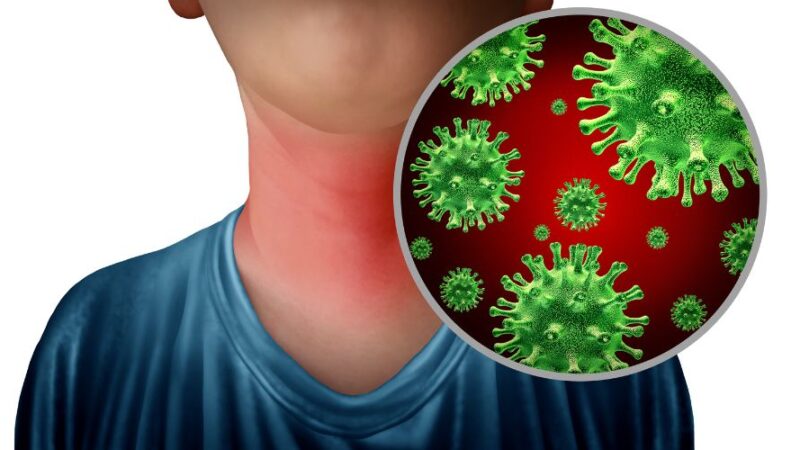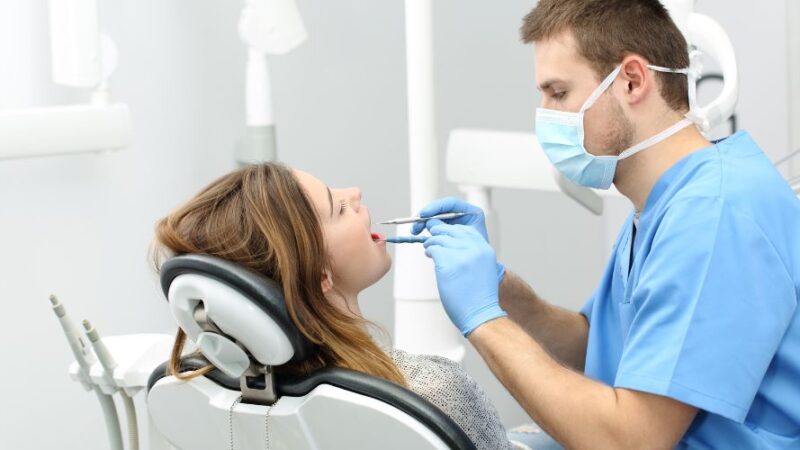Bad Breath: Causes & Treatment

Almost everyone gets terrible breaths from time to time. However, some people suffer from foul breath on a daily basis and struggle to find a solution. Approximately 30% of the population complains of having bad breath.
Halitosis (Latin for “bad breath”) is common after a garlicky meal or in the morning after awakening. Other causes of transient halitosis include certain beverages (such as alcoholic drinks or coffee) and tobacco use.
Some people may be unaware of their halitosis and only find out about it from a relative, friend, or coworker, causing discomfort and anguish. In severe circumstances, foul breath (together with terrible body odour) can have a detrimental impact on a person’s personal relationships and quality of life.
Common Causes of Bad Breath
Bad breath, or halitosis, can be a persistent and embarrassing issue for many individuals. Understanding the root causes is crucial for effective prevention and management. Here are some common factors contributing to bad breath:

- Poor Oral Hygiene: Inadequate brushing and flossing can lead to the buildup of bacteria in the mouth, resulting in unpleasant odours. Regular and thorough oral care is fundamental in preventing bad breath.
- Bacterial Growth on the Tongue: The tongue’s surface can harbour bacteria, dead cells, and food particles, contributing significantly to halitosis. Tongue cleaning or scraping is an essential part of oral hygiene.
- Dry Mouth (Xerostomia): Saliva plays a vital role in cleansing the mouth and neutralizing acids produced by bacteria. A dry mouth creates an environment where bacteria thrive, leading to bad breath. Causes include dehydration, medication side effects, or certain medical conditions.
- Dietary Choices: Strong-smelling foods like garlic, onions, and certain spices can linger in the mouth and contribute to bad breath. Additionally, crash diets or low-carbohydrate diets causing ketosis can result in unpleasant breath.
- Smoking and Tobacco Use: Tobacco products not only contribute to gum disease but also leave a distinct and persistent odour. Quitting Smoking is a crucial step in improving both oral and overall health.
- Medical Conditions: Underlying health issues such as respiratory infections, diabetes, liver or kidney diseases, and gastrointestinal problems can manifest as bad breath. Seeking medical advice for these conditions is essential.
- Dental Issues: Cavities, gum disease (gingivitis or periodontitis), and poorly fitted dental appliances can harbour bacteria and cause bad breath. Regular dental check-ups are key to identifying and addressing these issues.
- Sinus or Respiratory Infections: Conditions affecting the respiratory system, such as sinus infections or throat issues, can contribute to bad breath. Treating the underlying infection often resolves the associated halitosis.
Types of Bad Breath Odors
Bad breath, or halitosis, can manifest in various distinct odours, each potentially indicating different underlying causes. Understanding these odor types can help in identifying and addressing the root issues. Here are common types of bad breath odours:
- Sour or Acidic Odor: Acid reflux or GERD (gastroesophageal reflux disease) can lead to stomach acids reaching the mouth, causing a sour smell. Additionally, a diet high in acidic foods may contribute.
- Fruity or Sweet Odor: Uncontrolled diabetes can result in a fruity or sweet-smelling breath due to the presence of ketones. Ketones are produced when the body burns fat for energy.
- Ammonia-Like Odor: Kidney issues or problems with the urinary system may lead to the release of ammonia in the breath. Dehydration can exacerbate this odour.
- Garlic or Onion-Like Odor: Consuming foods like garlic and onions can cause their characteristic smells to linger in the breath. These odours usually diminish after the body processes and eliminate these compounds.
- Fishy Odor: Certain metabolic disorders or liver dysfunction can result in a fishy-smelling breath. These conditions may lead to the buildup of specific compounds in the body.
- Putrid or Foul Odor: Bacterial overgrowth in the mouth, especially on the tongue or between teeth, can produce a putrid smell. Poor oral hygiene, gum disease, or infected dental appliances may contribute.
- Metallic or Medicinal Odor: Medications, especially those with a metallic taste or odour as a side effect, can lead to a metallic-smelling breath. This is often a temporary effect while taking the medication.
- Rotten Egg Odor: Poorly managed or untreated periodontal (gum) disease can produce a sulfuric or rotten egg-like smell. The bacteria responsible for gum disease release sulfur compounds.

Effective Home Remedies for Bad Breath
Dealing with bad breath, or halitosis, can be a common concern, but several home remedies can help address the issue naturally. Here are some effective ways to combat bad breath at home:
Maintain Excellent Oral Hygiene
- Brush your teeth thoroughly at least twice a day, focusing on all surfaces, including the tongue.
- Use dental floss to remove food particles and plaque between teeth.
- Consider using an antimicrobial mouthwash to kill bacteria.
Hydrate Yourself
- Drink an adequate amount of water throughout the day to prevent dry mouth, a common cause of bad breath.
- Chewing sugar-free gum or sucking on sugar-free candy can stimulate saliva production.
Tongue Cleaning
- Use a tongue scraper or the back of your toothbrush to clean the surface of your tongue gently. Bacteria can accumulate on the tongue and contribute to bad breath.
Mouth Rinse with Saltwater
- Rinse your mouth with a saltwater solution to help neutralize acids and bacteria. Mix half a teaspoon of salt in a glass of warm water and use it as a gargle.
Baking Soda Rinse
- Create a mouthwash by mixing a teaspoon of baking soda in a glass of water. Gargle with this solution to help neutralize odours and maintain a balanced pH in the mouth.
Green Tea
- Drink green tea, which has natural antibacterial properties. This can help reduce bacteria in the mouth that contribute to bad breath.
Chew Fresh Herbs
- Chewing on fresh herbs like parsley, mint, or cilantro can act as a natural breath freshener. These herbs contain chlorophyll, which can neutralize odours.
Cloves or Fennel Seeds
- Chew on cloves or fennel seeds after meals. Both have natural antiseptic properties and can help freshen breath.
Apple Cider Vinegar Rinse
- Gargle with a diluted solution of apple cider vinegar and water. The acidity of vinegar can create an inhospitable environment for bacteria.
Probiotics
- Incorporate probiotic-rich foods like yoghurt into your diet. Probiotics promote a healthy balance of bacteria in the digestive system, which can positively impact breath.
Bad Breath Treatment
Dealing with bad breath, or halitosis, requires a systematic approach that addresses both the immediate symptoms and the underlying causes. Here’s a comprehensive guide to effective bad breath treatment:
Dental Check-up: Schedule a visit to your dentist for a thorough examination. Identifying and addressing any dental issues, such as cavities, gum disease, or poorly fitted dental appliances, is crucial.
Professional Cleaning: Undergo a professional dental cleaning to remove plaque, tartar, and bacteria from hard-to-reach areas. This helps eliminate sources of bad breath that may not be addressed through regular oral hygiene practices.
Improved Oral Hygiene: Brush your teeth at least twice a day using fluoride toothpaste, paying special attention to the tongue and gumline. Floss daily to remove food particles and plaque between teeth. Consider using an antimicrobial mouthwash to reduce bacteria in the mouth.
Tongue Cleaning: Use a tongue scraper or the back of your toothbrush to gently clean the surface of your tongue, where bacteria can accumulate.
Address Dry Mouth: Stay hydrated by drinking plenty of water throughout the day. A dry mouth contributes to bad breath, so maintaining proper hydration is essential.
Dietary Changes: Limit the consumption of strong-smelling foods like garlic and onions. Choose sugar-free gum or candy to stimulate saliva production and combat dry mouth.
Quit Smoking: If you smoke, consider quitting. Smoking not only contributes to bad breath but also increases the risk of gum disease and other oral health issues.
Manage Medical Conditions: If bad breath is linked to an underlying medical condition, such as diabetes or respiratory issues, work with healthcare professionals to manage and treat the condition effectively.
Probiotics: Introduce probiotics into your diet through foods like yoghurt. Probiotics help maintain a healthy balance of bacteria in the mouth and digestive system.
By combining professional dental care with consistent oral hygiene practices and lifestyle adjustments, individuals can effectively manage and treat bad breath. If persistent, consult with healthcare professionals to rule out any underlying health concerns and receive personalized guidance for long-term oral freshness.






